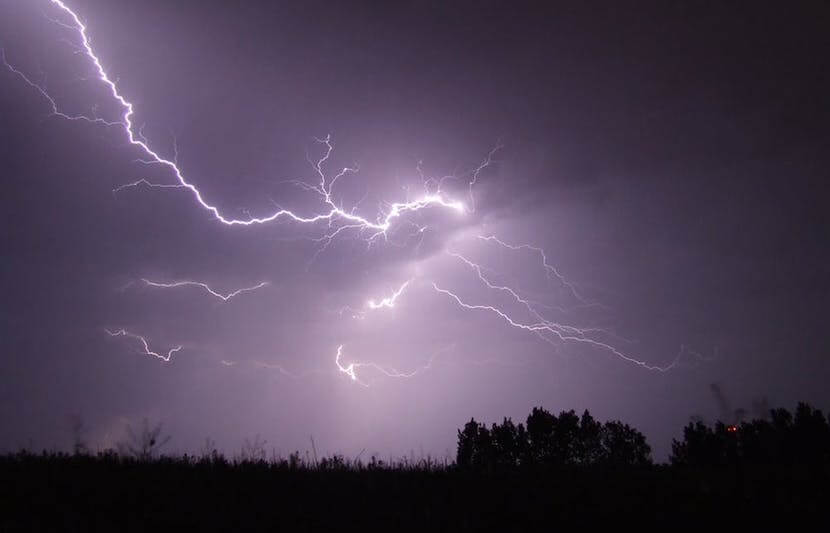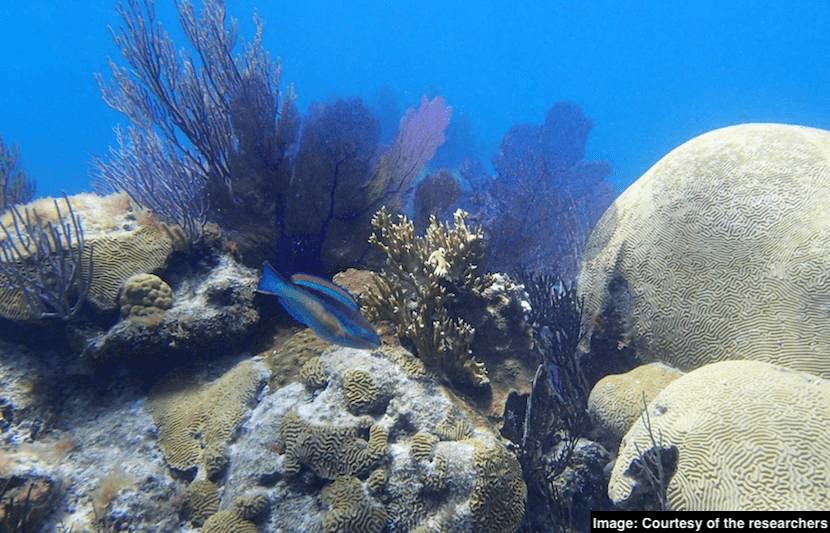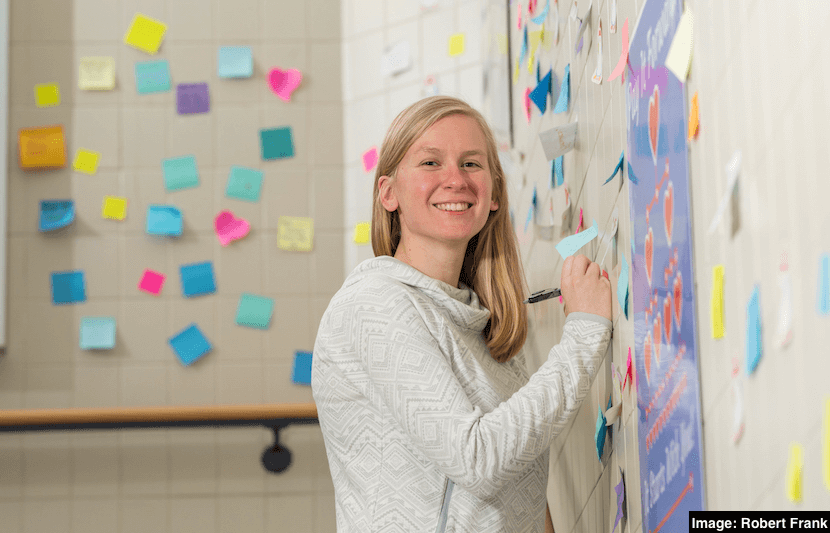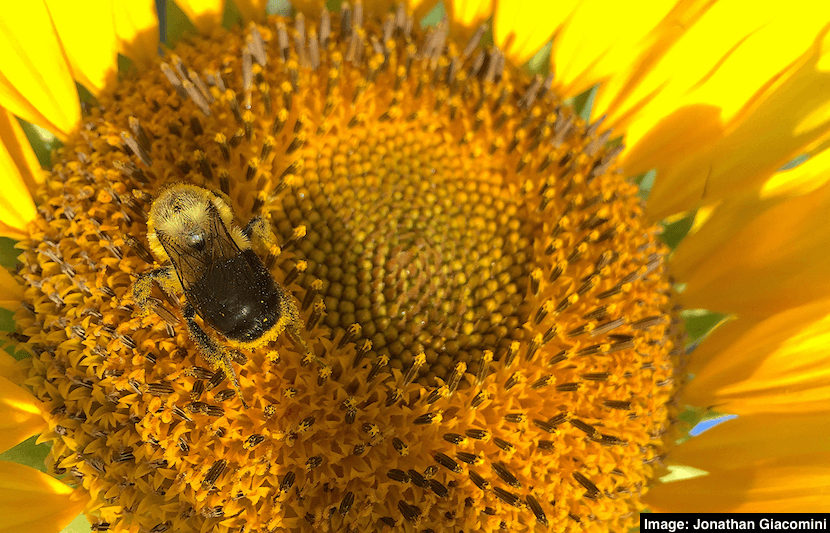-
Fighting Fake News by Targeting the Source, Not the Story
The onslaught of media in the social media era has made it ever-more challenging to know what news to trust. The phrase “fake news” has become a part of common parlance as fabricated stories stating false or misleading claims spread misinformation to thousands, even millions, of readers each day. This has created a major problem… Read More
-
New System Stores Summer Solar Energy for Use In Winter, at Night
The future of solar energy may not look the way you might expect. As solar panel and battery technologies grow more and more sophisticated, making it possible to dream of a day where we live off the sun’s energy, scientists at Chalmers University, Sweden, are developing a bold new solar technology — a chemical liquid… Read More
-
Why Mental Illness Should Be One of our Largest Climate Concerns
Most people can agree that natural disasters, such as hurricanes, droughts, wildfires and floods devastate communities. They injure, kill, displace and change people’s lives forever. Major disasters often receive at least some coverage and aid immediately after they happened, but they rarely get the attention they deserve in the years that follow. People move on.… Read More
-
Global Warming Will Intensify Mediterranean Wildfires, if We Don’t Change
Global warming will increase the potential of wildfire damage in Mediterranean Europe, a study led by researchers from the University of Barcelona (UB) finds. The good news is, if the world can limit global warming to just 1.5 degrees Celsius, the damage from wildfires will be significantly less. “To draw this conclusion we combined regional… Read More
-
Thickening Plant Leaves: A New Threat to Climate Change
In some parts of the world, CO2 levels have risen so high that plant leaves have begun to thicken. Because thicker plant leaves are less efficient at absorbing carbon dioxide, this seemingly harmless physiological response to rising carbon dioxide levels may worsen the effects of climate change, according to researchers at the University of Washington.… Read More
-
Why Can’t Devastating Weather Events Convince Climate Skeptics?
Extreme weather events are becoming much more destructive. In the past six years Americans have experienced four of the five costliest hurricanes in U.S. history. But extreme weather events, alone, are not enough to convince skeptics that humans are causing climate change, researchers from the University of Exeter, University of Michigan and University of Texas… Read More
-
Women Killin’ It in AI
From autonomous vehicles to emergency response robots, machine-learning artificial intelligence is quickly entering our daily lives. AI is developing at impressive rates, and continues to aid in the improvement of medicine, engineering, robotics and entertainment. Each day scientists around the world are developing innovative new technology — ranging in diversity from flexible robots to algorithms… Read More
-
130-Year-Old Brain Coral Reveals Nitrogen Pollution Not As Bad as Previously Thought
Every year, hundreds of millions of tons of nitrogen fertilizers seep into nearby bodies of water, wreaking havoc on marine life by causing algal blooms and creating massive dead zones. However, while nitrogen pollution is increasingly recognized as an urgent threat to marine ecosystems in coastal areas across the world, little is known about how… Read More
-
Harassed, Hurt, But Now Paying Kindness Forward
4 a.m. Campus is dark. Everyone seems to be asleep. Almost everyone. A group of students swiftly moves around different residence halls and commons, leaves hundreds of snack bags at each building, and quickly disappears from the scene. Even Santa Claus can’t seem to match the students’ agility. Next morning, pleasantly surprised with anonymous snack… Read More
-
Smartphone System Can Detect Lead in Water
Researchers from the Cullen College of Engineering at the University of Houston have developed a novel system that makes it possible to detect lead in drinking water using a smartphone. The device is both low-cost and reusable, and may be available to consumers in the future. “We were inspired by the water crisis that happened… Read More
-
The Secret to Making Happiness Last Longer
Short-lived happiness may seem like a natural, frustrating part of life, but what if there’s a way to make feelings of enjoyment last longer? That is possible, according to researchers from the University of Minnesota and Texas A&M University, and it comes in the form of goal setting. The researchers explored how framing a goal… Read More
-
How Sunflower Pollen Can Save Declining Bee Populations
Declining bee populations could be saved by sunflower pollen, researchers from North Carolina State University and the University of Massachusetts Amherst find. Humans rely on bees for more than just honey. Food production, ecosystems and the economy are all dependent on the survival of our six-legged friends. For these reasons, scientists have been longing for… Read More
-
Atlantic Forest Mammal Population Devastated by Human Activity
Centuries of human activity in Brazil’s Atlantic Forest have cut its local mammal populations in half since the 1500s. This was the conclusion of a team of researchers from Brazil’s Universidade Federal de Santa Catarina and the UK’s University of East Anglia, whose paper is published in the journal PLoS ONE. Although the forest is… Read More
-
Disparities In Mental Health Services Leave Students of Color with Less Care
Among college students with clinically significant mental health problems, significantly less number of students of color received treatment than those of white students, a new study has found. The paper is published in the Journal of Adolescent Health. Students are aching inside Every year, the number of students in need of mental health assistance continues… Read More















